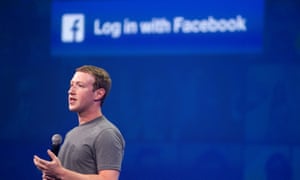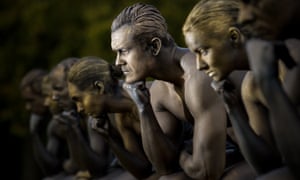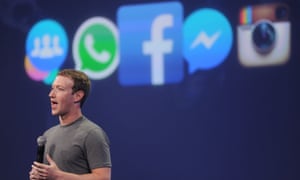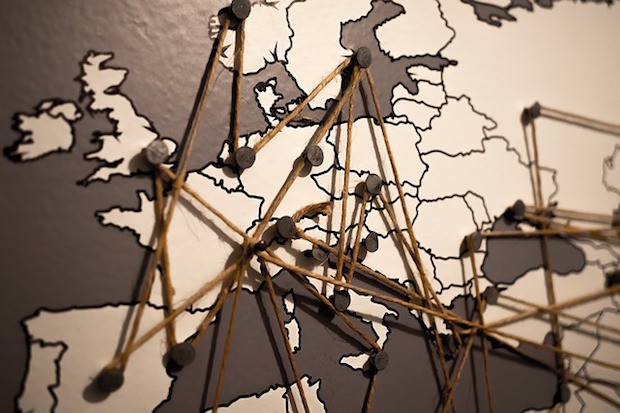6. Write your own 500 word argument on your blog either for or against the debate proposition: "This house believes that films featuring ethnic minorities should only be produced by those who have the ethnic identity being represented."
Gone too far is an energizing, interesting and drawing in film by Destiny Ekaragha's which investigates the crossing points of dark personality through the characters of British-Nigerian young person Yemi (Malachi Kirby) and his guileless foreigner sibling Ikuadyisi (OC Ukeje). The film is quick paced and pressed with schadenfreud, being determined to a day around the bequests and high boulevards of Peckham. Yemi's sibling, Ikuadyisi, gets into a wide range of inconvenience upon his entry when they pass by some Okra, a staple sustenance of Nigeria, and Yemi's endeavors to inspire uproarious mouthed nearby diva Armani (Shanika Warren Markland) prompts to Ikuadyisi battling for himself in the city of Peckham. The issues they confront with the nearby group, their mom and Armani highlights a few racial issues while likewise giving droll cleverness to the gathering of people.
Wednesday 30 November 2016
Tuesday 29 November 2016
Deals on drugs, weapons and stolen data - Black Friday comes to the dark web #24
Deals on drugs, weapons and stolen data - Black Friday comes to the dark web
The black market in stolen goods, illegal drugs and weapons that exists on the dark web is not immune to the forces of capitalism, despite the sale of these illegal items and numerous cyber crime violations the criminal gangs that control this side of the web have incorporated the black friday and cyber monday sales to their networks. The limited time offers included 20% off of certain weapons and drugs."Once again we can see how professional the cybercriminal underworld is in their operations," said James Chappell, chief technology officer and co-founder of Digital Shadows.
I believe that cyber-criminality is increasing and things like this on the dark web encourage more behaviour like this, however the dark web isnt reported on too often and so doesnt and quite rightly receive enough attention.
Facebook doesn't need to ban fake news to fight it #23
Facebook doesn't need to ban fake news to fight it

After the caution the distributing of fake news by Facebook has brought on, extending from death tricks about Tiger Woods to lies in regards to the US presidential hopefuls, it's presently being put into question whether they ought to really be the ones adhering to a meaningful boundary with regards to the news that is being distributed. This has been achieved with it now being asked whether we'd 'be revolted on the off chance that one organization claimed every one of the newspaper kiosks and chose what was appropriate and uncalled for perusing charge.
I believe that this new move to crowdtangle is because of the criticism about facebook influencing the election result, despite saying this was not true facebook still purchased this software which makes significant difference to what news stories appear on peoples pages. Some would argue that this is a way of controlling what people see on their pages although some would say this is a good thing as it opens people up to different sides of arguments.
Sunday 27 November 2016
Exam question Marxism&Pluralism
The development of new/digital media means the
audience is more powerful in terms of consumption and production. Discuss the
arguments for and against this view.
Arguments that support this view
include the pluralist argument which would suggest that audiences are empowered
as 70% of the UK now have access to the internet meaning consumption is at an
all time high and with 18million regular blog readers it would also suggest
production is growing among ordinary citizens. However, from a Marxist point of
view audiences are not considered to be empowered and instead they are
controlled by the large media conglomerates and multinationals like newscorp
and google who’s revenues are in the dozens of Billions every year and this
appears to be growing. This essay will further explore these arguments in terms
of audience empowerment with consumption and production.
A Marxist perspective would argue
that the so-called “information revolution” has done little to benefit
audiences or to subvert the established power structures in society. Far from
being a “great leveller” (Krotoski, 2012) as many have claimed, it has merely
helped to reinforce the status quo by promoting dominant ideologies. The most
popular news website in the UK by a considerable margin is the ‘Mail Online’,
which receives more than 8 million hits every month and is continuing to expand
rapidly – with forecasts that it will make £100 million or more in digital
revenues in the next three years. Similar to its tabloid print edition, the
website takes a Conservative, right-wing perspective on key issues around
gender, sexuality and race and audiences appear to passively accept what the
Marxist theorist, Gramsci, called a hegemonic view. When one of their chief
columnists, Jan Moir, wrote a homophobic article about the death of Stephen
Gately in 2009 there were Twitter and Facebook protests but, ultimately, they
did not change the editorial direction of the gatekeepers controlling the
newspaper.
However, a pluralist would argue
that audiences are more powerful as a result of new and digital media. Briggs
and Burke describe the internet as ‘the most important medium of the 21st century’. This invention has
revolutionised the way audiences consume and produce media products and sparked
a wave of new technology and communications devices which has led to the rapid
development of countries around the world and the empowerment of millions of
people like in South Korea. Moreover, a pluralist would suggest audiences use
the media for things like surveillance and information and this is true for
instance during the Arab spring protests people used social media- a product of
new and digital media to organise protests and to find out what was going on
which otherwise wouldn’t have been broadcasted by their governments. ‘Rebellion
is encapsulated by the internet,’(Keen) this reinforces the idea of being able
to protest and organizing this on social media by the people would indicated
that they are empowered as producers and consumers.
However, another Marxist view would
suggest that audiences are not empowered with developments in new and digital
media and are, according to the theorist Gramsci are dominated by one social
class who maintain and enforce hegemonic control. Moreover, Debotton- another
theorist would claim that ,’news outlets need their audiences to be frightened
in order to get through to us’ this, along with Gramscis theory fully supports
the Marxist argument as it is clear that in tabloid news and tv news bad news
of pain and destruction is frequent and the balance between this and good news
is heavily leaning towards the bad and one would get the feeling that this is
what the media institutions want us to see and usually end up creating a moral
panic. This would suggest that audiences are not empowered. Furthermore De
Botton also said that we have ‘narrow minded news’ meaning the news is bias and
as consumers we aren’t empowered to change it and are essentially spoonfed the
information that the large media conglomerates want us to see for instance companies
like Google and the mail online are earning 100’s of billions over the course
of several years, and this supports the Marxist view and indicates that
audiences aren’t empowered.
A Pluralist viewpoint may contend that; as far as News
utilization the E-media stage has been a critical help in allowing to the
greater part of the start up and 'bungalow Industries' who need to create news
content. The web and all the more particularly online networking (Facebook,
Instagram) can be depicted as the "Mechanical blooming of the way of life
of flexibility, individual development and entrepreneurialism" (Castells,
1996) in light of the fact that for a crowd of people it not just gives them
much more wellsprings of news to browse, which is supportive of pluralism as
Pluralist's consider society to be comprising of contending gatherings and
interests, none of them overwhelming constantly; however it likewise gives them
a stage which is to a great extent out of state control so they can report and
discuss news stories continuous. However this might be an issue in a few states
where the Government in control has to a greater extent a Marxist view and
confines access to perspectives which conflict with there possess philosophies,
for instance Russia and China have now both gone into assentions about firmly
extending there firewalls to limit and screen content over the Internet. This
obviously is a Marxist view and unmistakably demonstrates the perspective of an
industrialist society as being one of class control. Doing a reversal to take a
gander at how groups of onlookers devour media, specifically; where they see
there News on the Internet as taking a gander at the OFCOM report of national
review insights it expressed that around 43% of individuals who utilize the
Internet for their News utilize online networking destinations, for example,
Facebook and Twitter. Facebook and Twitter are both locales which many set up
news associations use to exhibit there news yet it is likewise a stage for subject
columnists who compose what they see and this is the reason online networking
has such high client activity since groups of onlookers can believe this and
not acknowledge the standards of an overwhelming society which is the thing
that they may get when taking after bigger news associations. Subsequently, another pluralist point of view paretos law can be disregarded
with Negropontes theory,’ the monolithic empires of mass media are dissolving
into an array of cottage industries’ this is suggesting that consumers now have
a significant amount of sources to instead of using the select few chosen by
their own government which unfortunately in countries like north korea is still
the case.
To conclude, I believe both arguments can be criticised but I agree
more with the pluralist argument as the idea of pluralism is incorporated into
the UK’s democracy as power is dispersed amongst regional governments and most
importantly to the people which is what pluralism in the media does, it
empowers the people to be able to make their own decisions on the web and
developments into new and digital media means more people can have access to
this new form of freedom though it is still important to remember that the Marxist
argument can be applied to some parts of the developing world though much of the developed world encourages
the pluralist argument.
Tuesday 22 November 2016
Politics has gone wrong. Is digital technology to blame? #22
Politics has gone wrong. Is digital technology to blame?

This articles talks debates whether technology is to blame for politics going wrong. The writer describes politics going wrong as this year brexit was voted in and at the time this was written people strongly believed Donald Trump was going to be elected and now we know this has become a reality.
I disagree that the internet is to blame as i believe it to an extent strengthens democracy, when Clinton was first eletcted in 1992 the internet and mobile phones were a new invention and helped to expand democracy and promote clintons ideologies, aslo it meant things in congress could get done a lot quicker with email instead of signing everything by hand and recieving news this way. Moreover, the internet has allowed pressure groups like the 38degrees in the UK to hold the government to account outside of general elections which is important for democracy.
Obama is worried about fake news on social media – and we should be too #21
Obama is worried about fake news on social media – and we should be too

This news article is reviewing obamas comments made in the new yorker about the news being false online and the impact this might have had on the recent election, “If we can’t discriminate between serious arguments and propaganda, then we have problems.” this quoted from him speaks for itself as fake news that people believe to be true can have serious impacts.
I believe that fake news is becoming a real issue and with 62% of US adults using social media for their news fake news stories are in abundance here and this has lots of influence. Also during the UK referendum campaign the lie about the mysterious £350 million could have swayed a lot of voters whilst not even being true.
Marxism & Pluralism: Alain de Botton on the news
Marxism & Pluralism: Alain de Botton on the news
1) To what extent do you agree with Alain de Botton's views on the News?
To some extent i do agree with Alan de Botton's views, as it is clear that celebrity news is often on the front page whereas more intellectual news like politics is pushed further back, however this can't be said for all newspapers as some like the Guardian focus more on things like politics. Although i can see that gossip does make the front pages i believe it is entirely dependent on the newspaper and its audience type. This arguably useless news reflects its audiences and 20-30 years ago people like Katie price wouldn't make front page news but with this sought of news being spread around is it suggesting the population is becoming less sophisticated? and this is where i agree with Alan as more useful news is being pushed back and is actually stuff people need to know but choose not too possibly because they have become used to seeing celebrities on the front pages.
2) How can you link Marxism and Hegemony to de Botton's criticisms of the News?
Alan de Botton criticises the news by saying that they spoon feed their passive audiences news without them questioning it which also links to the hypodermic needle model. This links to marxism and hegemony because it reinforces the idea of one dominant social class owning the news and flooding it with their own ideologies and views, and this is what a passive audience tends to believe.
3) How could you use Pluralism and new technology to challenge de Botton's views on the News?
Pluralism would suggest that we have the power to choose what we decide to read and from where so that we arent influenced by one dominant social class. But also because of new technologies we are capable of creating our own news-user generated content via social media like twitter and facebook.
4) Choose two news stories from the last six months - one that supports de Botton's views and one that challenges his belief that the News is used for social control.
https://www.thesun.co.uk/news/2237337/inside-the-home-on-estate-where-tv-icon-lived-that-has-gone-on-sale-for-1million-and-can-you-guess-which-one/ this pointless news story would support de bottons views on useless news being put infront of more useful news like the appointments that president elect trumps has been making this week which is something that affects the whole world but isnt a priority.
Sunday 20 November 2016
NDM: Marxism, Pluralism and Hegemony
NDM: Marxism, Pluralism and Hegemony
1) Research the Ian Tomlinson case. What would the traditional, hegemonic view of the police be in a case like this? How did new and digital media create a different story? What does the police officer's subsequent acquittal suggest about the power of new and digital media?
Ian Tomlinson died when a police officer struck him with a bat at the 2009 G20 summit march in London. Originally the police claimed that,'London. Originally the police issued a statement that:
described attempts by police medics and
an ambulance crew to save his life after he
collapsed – efforts they said were marred by
protesters throwing missiles as first aid was
administered.'
Without the invention of Web 2.0 and the ability to share amateur content on places such as youtube this crime would have gone unpunished and the traditional hegemonic view that the police are above every other class in society would have been reinforced.
2) What does the author argue regarding whether hegemony is being challenged by Web 2.0?
The author suggests that it is being challenged as people can directly challenge government through the use of new and digital media. 'Technology empowers the people' this is important as access to smart phones and other recording devices as well as blogs and streaming/video sharing sites allows people to give their unmediated opinion. However, in places like China or North Korea where the government still has heavy influence on what the people share and view web2.0 isnt as significant on the whole world but its impacts so far have been felt.
3) In your opinion, does new and digital media reinforce dominant hegemonic views or give the audience a platform to challenge them?
I believe it does both but more so gives the audience the platform to challenge them as without this the hegemonic views would exist without challenge and whilst the audiences arent completely empowered its better than not having any kind of platform to challenge the hegemonic views.
4) Do recent world events such as Brexit or Donald Trump's election in the US suggest dominant hegemonic ideologies are being challenged or reinforced? There are arguments for both sides here - explain your opinion and why.
I do believe they are being challenged as especially in the world of politics things are changing and not in the way people expected as things have gone to the 'extreme' right of the political spectrum which is the opposite of what many people would think that would challenge hegemonic views. By voting for things like Brexit in the UK and electing Trump in the US this could be a protest of people protesting the already hegemonic leaderships in the world. In the US election many supporters of Bernie Sanders a candidate of the democrat party leaning towards the extreme left arguably had more support than Clinton and after his loss in the primaries an influential amount of his supporters went to supporting a candidate on the extreme right-Donald Trump. I believe that this is a protest of the people against government control just swung in the opposite way many had not expected to happen.
Thursday 17 November 2016
BBC News most trusted source for more than half of people in the UK #20
BBC News most trusted source for more than half of people in the UK
The greater part of the general population in the UK view the BBC as their most trusted wellspring of news, as indicated by an overview directed by 38 degrees. The organization's size and extension stays dubious after a year ago's financing settlement in which went up against the £700m cost of free TV licenses for the more than 75s.The BBC likewise positioned beat when given a choice of non-one-sided communicate wellsprings of news.
Being a non-biased news source now-a-days is important for the people to rely on as information is usually distorted and not always true from other sources as they would have some political sway and opinion.
Support new news providers via a levy on digital giants like Google and Facebook #19
Support new news providers via a levy on digital giants like Google and Facebook

This 'redirecting' of publicizing income by advanced monsters, for example, Google and Facebook, alongside some of their different practices has raised to a level where it's presently being proposed that they now pay an 'exact on the operations of the biggest computerized delegates with the subsequent assets redistributed to non-benefit wanders with an order to create unique neighborhood or investigative news reporting.' The point of this plan is to have the capacity to put in any event in some sense, a stop to things like diminishment in quality inside news coverage and battle against the loss of employments inside it.
I feel that this proposed amendment could do a good amount of help to the news industry as it is today. Particularly for more regional newspapers it would be of benefit and also investigative journalism which is something that's even deemed as a 'public good.' However before such a thing can actually be established in the first place, Parliament has to agree on it and observing whether they will or not will be particularly interesting.
Facebook buys tool that tracks how stories spread #18
Facebook buys tool that tracks how stories spread
Considering that half of all Americans get their news from facebook this was an important investment for the media company. 'Crowdtangle' the analytical service that detects the most shared stories on a website and surfaces them to be on peoples pages. In another story facebook was accused of influencing the 2016 presidential election with their algorithmic system but this new 'spontaneous' change in system could be a way of making sure people see a range of stories that are popular and reflect both sides of an argument.
I believe that this new move to crowdtangle is because of the criticism about facebook influencing the election result, despite saying this was not true facebook still purchased this software which makes significant difference to what news stories appear on peoples pages. Some would argue that this is a way of controlling what people see on their pages although some would say this is a good thing as it opens people up to different sides of arguments.
Wednesday 16 November 2016
Mark Zuckerberg rejects 'crazy idea' Facebook influenced US election result #17
Mark Zuckerberg rejects 'crazy idea' Facebook influenced US election result
This article talks about how co-founder of Facebook Mark Zuckerberg responds to comment made by some people accusing facebook of influencing more people to vote for Donal Trump for the US presidential election on November 8th 2016. Facebook uses an algorithmic system which means whatever people click on is noticed and stories and articles related to what people click on will be seen on their page. Zuxkerberg claims that people have the choice of what to click on as there is more than enough information for any type of argument as it is 'diversified'. He also says this is more than what traditional mass media can offer.
I dont believe facebook is completely to blame for influencing the election result although their algorithmic system could be updated or removed as people are only seeing what they want to see which is partly facebooks fault but nonetheless it is still the person that chooses to view it.
Sunday 13 November 2016
NDM: News Values
NDM: News Values
1) Read Media Factsheet 76: News Values and complete the following questions/tasks.
2) Come up with a news story from the last 12 months for each of the categories suggested by Harriss, Leiter and Johnson:
- Conflict
- Progress
- Disaster
https://www.theguardian.com/world/live/2016/oct/30/italy-earthquake-66-magnitude-tremor-felt-in-rome
- Consequence
- Prominence
- Novelty
3) What example news story does the Factsheet use to illustrate Galtung and Ruge's News Values? Why is it an appropriate example of a news story likely to gain prominent coverage?
The example used is of a British service woman killed by a bomb blast in Afghanistan. This is a prominent news story because although its proximity is far away from home, she is still a British woman and that gains a 'cultural proximity'. Also, the story is intense as this was the first service woman killed in Afghanistan.
4) What is gatekeeping?
4) What is gatekeeping?
A gatekeeper in terms of this topic is somebody who chooses what material sent in from the public is worth using.
5) What are the six ways bias can be created in news?
- Bias through selection and omission, when selecting or editing a story the editor can be bias by choosing whether or not to use a specific story and what bits are shown of the story as this could paint another picture if things are left out.
- Bias through placement, so where a story is placed online or in a news paper usually shows it's significance and if an important story is placed in the middle or towards the back then they maybe less appealing because people are accustomed to finding the most important stories at the front of the site/paper.
- Bias by headline, the Headlines are one of the first things that someone reads on a newspaper, however headlines can be misleading, convey excitement and express approval/disapproval.
- Bias by photos,captions and camera angles, the way a picture is taken or the way a video is shot can make a person look better and show them in a different way, either positively or negatively.
- Bias through use of names and titles, different names and labels can be given to people to make them appear different in other peoples perspectives, for example 'Terrorist' can also be labelled as a 'freedom fighter'.
- Bias by choice of words, people can be influenced by the use of positive or negative words which carry with them certain connotations.
Sites like wikileaks and twitter are providing a lot of the stories that regular channels choose which of those stories will be published or broadcasted.
7) Give an example of a news story from the last 12 months that was reported as a result of online technology - Twitter, Wikileaks or similar.
Wikileaks revealing Hilary Clintons emails from a breached email server.
Donald Trump insulting people on twitter.
8) Complete the task on the last page of the Factsheet regarding Sky News and Twitter:
- What does this reveal about how Sky views Twitter as a news source?
It suggests this is where a news story breaks and where people comment on this and give their own reports on how things happened.
- What does it say about how news is being produced?
It is indicating that news is being produced by the people usually via social media like twitter.User generated content is becoming a major part of news production now a days
- What role does the audience have in this process?
Audiences are now empowered as they can publish their own content.
- Why might this be a problem for journalistic standards?
There may be a decrease in professional journalism because UGC is free and widely available, and because of this journalistic standards would most likely go down.
9) In your opinion, how has new and digital media technology changed Galtung and Ruge’s news values?
NDM hasnt changed the news values that much as most of them are still relevant for today for instance 'negativity' which is always in the news and usually makes the headlines. However, things like immediacy have changed because of NDM as when a news story breaks it is much quicker and across different platforms. Moreover, amplitude has also been affected as many parts of the world have began developing and most people now have access to NDM technologies.
10) How would you update them for 2016? Choose SIX of Galtung and Ruge's news values and say how each one has been affected by the growth of new and digital technology.
Familiarity- news is becoming a lot more global with stories around the world being broadcasted on British national news also with news apps or online there are international sections and US sections to find news in other countries which isnt related to Britain.
Amplitude- With population growing exponentially events that happen tend to be on a larger scale and reach a larger audience
Elite nations and people- Celebrity 'news' is becoming much more available with some magazines and channels dedicated to exposing their lives.
Negativity- This seems to be increasing because of NDM with negative news stories from around the world being shared.
Continuity- It is much harder to verify news stories coming from online social media and many hoaxes start here like the death of celebrities.
Predictability -social media creates unpredictability through the use of things trending and creating something out of nothing. An example of this is the blue and black dress and how certain people perceived this in different ways
Tuesday 8 November 2016
How Google's Digital News Initiative is evolving #16
How Google's Digital News Initiative is evolving

This article talks about how google is offering cash incentives to journalists from around the world to post their news stories online. Almost £130 million has been invested into this so far. Moreover, google will not own any of the content that they will be promoting so cannot make a profit from it.
This seems like a bid to save professional journalism, something google have been accused of starting in the first place by taking advertising revenue away from the newspapers where journalists had their stories, so some would argue that this is something google should have done before to help protect professional journalism.
This seems like a bid to save professional journalism, something google have been accused of starting in the first place by taking advertising revenue away from the newspapers where journalists had their stories, so some would argue that this is something google should have done before to help protect professional journalism.
Telegraph paywall initiative is an interesting strategic shift #15
Telegraph paywall initiative is an interesting strategic shift

The telegraph has recently announced that it will be putting its premium online content up behind a paywall. This means that a large amount of their content is still free for the public to view, , specifically 85% although only premium content possibly some videos. This was also implemented to safeguard journalists jobs as online newspapers struggle to make money from advertising revenue.
I believe it could be a risky move to out some content behind a paywall, for example when the sun went completely behind a paywall they suffered significantly although the telegraph are only putting a small amount of their content behind the paywall which could be a success but only time will tell.
Sunday 6 November 2016
NDM News: Citizen journalism and hyper-reality
NDM News: Citizen journalism and hyper-reality
2) Create a blogpost where you make notes from the article under the following headings:
- examples
-1991 video cameras becoming more widely available witnessing police brutality on Rodney King.
-December 26th 2004 asian tsunami captured by accidental journalists on mobile phones.
-july 5th 2007 london terror attacks, unmediated footage to show on news channels.
- theory (audience reception etc.)
-ugc
-uses and gratifications no longer are audienced using news for surveillance they are taking in part in creating the content
- benefits to institutions
-Free footage from public
- benefits to audience
-unmediated news raw footage
-Able to see what is going on faster
- variety of places to access news from like social media
- wider issues and debates
-Professional journalists loosing jobs
- SHEP
S- Journalist loosing jobs
H- audiences no longer passive
E- institutions not paying for content
3) What is meant by the term ‘citizen journalist’?
Citizen journalist/accidental journalist is a member of the public who has reported on a news story as it is happening by recording via smart phone or video camera, or talking about the occurring even on social media platforms.
4) What was one of the first examples of news being generated by ‘ordinary people’?
One of the first examples was in 1991 when rodney king was excessively beaten by LA police officers. A man in an apartment building saw this and decided to record on his video camera and send it to news stations. Without this this crime would have gone unnoticed. Video cameras started this off but now a days most citizens use mobile phones to capture events as they happen.
5) List some of the formats for participation that are now offered by news organisations.
-comment sections
-chat rooms
-internet in general
6) What is one of the main differences between professionally shot footage and that taken first-hand (UGC)?
Professionally shot footage is 'mediated' which means it is often stages and planned and occurs after the event has taken place. Whereas, UGC is un-mediated and raw footage usually of poor quality from somebodys mobile phone.
7) What is a gatekeeper?
A gatekeeper in terms of this topic is somebody who chooses what material sent in from the public is worth using.
8) How has the role of a gatekeeper changed?
Gatekeepers now have to sieve through pointless spam like photos of kittens to try and find useful stories.
9) What is one of the primary concerns held by journalists over the rise of UGC?
Journalists fear for their jobs as UGC is rising and social media is becoming an important source for peoples news.
10) Offer your own opinion (critical autonomy) on the following:
UGC has meant that journalist are loosing their jobs and this puts everybody at a disadvantage as professional journalism has uncovered stories likes the watergate scandal and the people providing ugc dont have the skills to do this.
Hyper-reality and the digital renaissance
2) Create a new blogpost called 'Hyper-reality and the digital renaissance' and make notes from the article under the following headings:
- examples
-Ciema
-TV
-Internet
-social networking
- theories
-Audience reception how we as an audience decode the messages producers have put into their product with dominant,negotiated and rejected reading
- two step flow model
- positive aspects of new technology (or 'digital renaissance'
-New sources of information, people become more educated on international issues because of things like social media.
- negative aspects of new technology on audiences and society
- Online/cyber bullying via social networks like facebook
- wider issues and debates
3) The article was written in 2009. Offer three examples of more recent social networking sites or uses of technology that support the idea of a 'digital renaissance'.
Snapchat
periscope
face time
4) How do live streaming services such as Periscope or Facebook Live fit into the idea of a 'digital renaissance'? Are these a force for good or simply a further blurring of reality?
They do both in a way as it allows people to connect with other people from around the world sharing aspects of reality- being a force of good but also blurring from reality as some of what they say may be distorted or taken from somewhere else- blurring the reality.
5) How can we link the 'digital renaissance' to our case study on news? Is citizen journalism a further example of hyper-reality or is it actually making news more accurate and closer to real life?
I believe that it makes news more accurate as it isnt mediated or staged so it cant be hyper reality if it is a raw video. However by seeing the clip on various news sites or social medias the clip could come distorted and this would become an example of hyper reality.
Subscribe to:
Posts (Atom)
